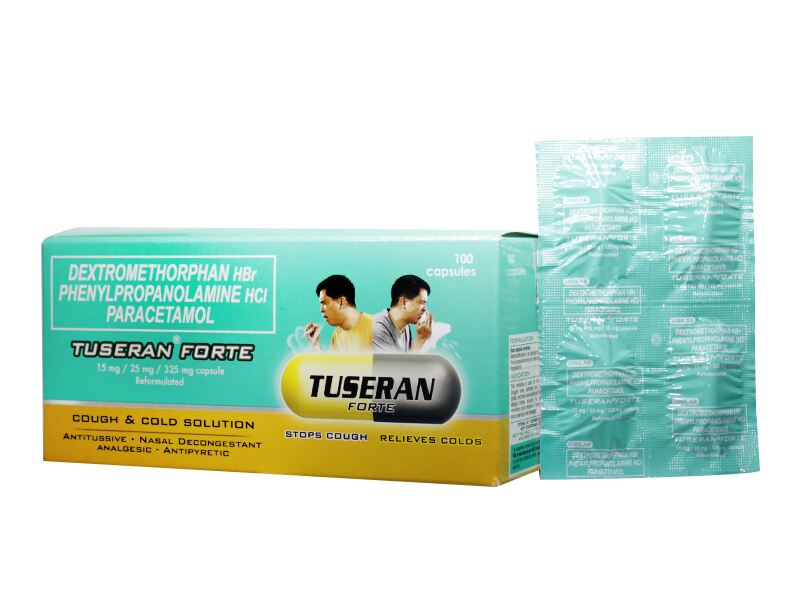Aside from the discomforts that dry non-stop cough symptoms bring, choosing the right product can equally be tiresome. And, because you are already tired from all the symptoms, it’s quite tempting to grab the first one that comes to hand. However, as persistent coughs differ from one another, relying on guesswork might not be a wise choice. Instead, gaining knowledge about the various ingredients can help lead you to what you actually need.
Different types of persistent or chronic coughs may require different approaches. Some may need relief from a dry, irritating cough, while others may need help breaking up mucus and clearing chest congestion. In certain cases, addressing persistent cough might require a combination of ingredients.
Rather than engaging in a trial-and-error spree, you may want to read through this list of cough medicine ingredients and what they can do.
Symptoms that Accompany Cough
Before we get into the specifics of cough medicine ingredients, here are some common symptoms that often come with a dry non-stop cough.
- Wheezing: Characterized by a high-pitched rattling or whistling sound during breathing, indicating blocked airways.
- Difficulty Breathing: The medical term for shortness of breath is Dyspnea. It is characterized by the feeling of not getting enough air into your lungs.
- Fever: Having a body temperature higher than 101 degrees Fahrenheit or 38.3 degrees Celsius).
- Clogged Nose: Can lead to discomfort and trouble breathing through the nose.
- Allergic Rhinitis Symptoms:
- Itchy Watery Eyes: May cause redness and irritation.
- Skin Rashes: Can manifest as redness or hives, adding to overall discomfort.
Being aware of these symptoms can help you pinpoint and choose possible options to aid you with your recovery. Remember that evaluation with a healthcare professional is always best!
Ingredients that Help with Dry Non-Stop Coughing
Here are some cough medicine ingredients that may help address your symptoms. Some of these might even be found in one formulation.
Remember: Consult your doctor to find the combinations that may work for your condition.
- Dextromethorphan HBr
If you want some help in getting a break from the coughing loop that you are experiencing, you might want to consider an antitussive (cough suppressant) like Dextromethorphan Hydrobromide. It works by aiding in calming the cough reflex in your brain.
- Phenylpropanolamine HCl
Obstructed air passages and nasal sinuses? Phenylpropanolamine Hydrochloride may be helpful. It aids in tightening the blood vessels in the nose, sinuses, and the chest. Constriction of these blood vessels allows drainage of those areas, which helps lessen congestion or swelling.
- Paracetamol
Paracetamol is an over-the-counter fever reducer and pain reliever. Paracetamol helps by inhibiting an enzyme in the brain that produces prostaglandins. Prostaglandins are hormone-like substances in the body that mediate pain signals and inflammation.5 By decreasing their production, paracetamol helps alleviate pain.
- Diphenhydramine HCl
Diphenhydramine Hydrochloride can help block the effects of histamine, the culprit behind those annoying allergy symptoms like skin rashes and hives.
A Solution that Helps with Dry Non-Stop Cough
Having learned about these ingredients, you’ll feel more prepared for your pharmacy visit! If you are looking for cough products with these ingredients, consider trying Dextromethorphan HBr Phenylpropanolamine HCl Paracetamol (Tuseran® Forte) or Diphenhydramine HCl Phenylpropanolamine HCl (Tuseran® Night) Syrup.
Dextromethorphan HBr Phenylpropanolamine HCl Paracetamol (Tuseran® Forte) is a medicine that helps alleviate cough, clogged nose, postnasal drip, headache, body aches, and fever associated with the common cold, allergic rhinitis, sinusitis, flu and other minor respiratory tract infections. It also helps decongest sinus openings and passages.
Diphenhydramine HCl Phenylpropanolamine HCl (Tuseran® Night) Syrup
This medicine aids in relieving cough, clogged nose, runny nose, postnasal drip, sneezing, and itchy and watery eyes associated with the common cold, allergic rhinitis, sinusitis, flu, and other minor respiratory tract infections. It also helps decongest sinus openings and passages.
Who can take these medicines?
Adults & children 12 years and older.
How often should you use these cough medicines?
Dextromethorphan HBr Phenylpropanolamine HCl Paracetamol (Tuseran® Forte)
1 capsule every 6 hours, or as recommended by a doctor.
Diphenhydramine HCl Phenylpropanolamine HCl (Tuseran® Night) Syrup
Orally, every 6 hours, or as recommended by a doctor. Suggested dosage is 10mL or 2 teaspoonsful.
Where to Buy these Medicines?
Both Dextromethorphan HBr Phenylpropanolamine HCl Paracetamol (Tuseran® Forte) and Diphenhydramine HCl Phenylpropanolamine HCl (Tuseran® Night) Syrup are available in the official Unilab Store. They are also available in leading drugstores and online stores nationwide.
If symptoms persist, consult your doctor.
ASC Reference Code: U0171P010825T
References:
Sore throat: Pharyngitis
Wheezing | Cleveland Clinic
Chronic Cough Overview
Dextromethorphan Hydrobromide
What are Antitussives?
Paracetamol for Adults
Body temperature regulation: How fever comes
Prostaglandins
The use of paracetamol for first-line treatment of acute sore throat. A descriptive generic qualitative study of GPs and patients





